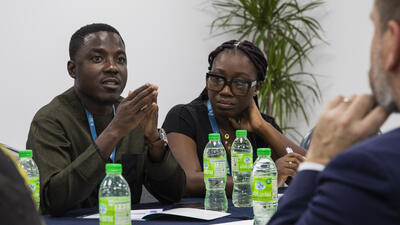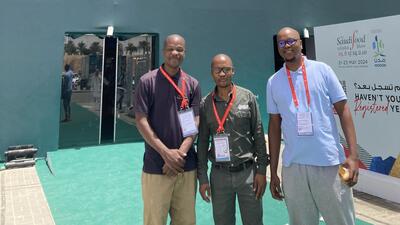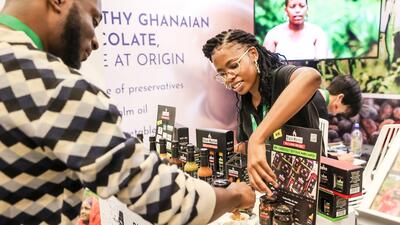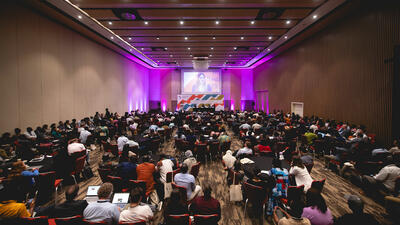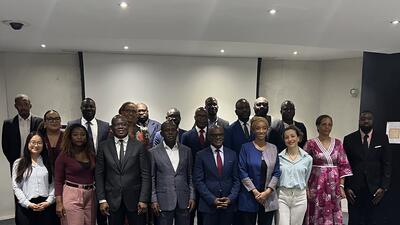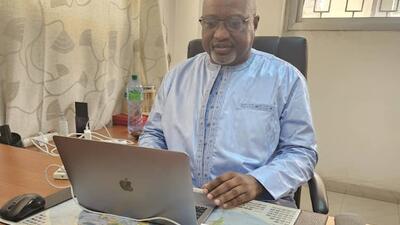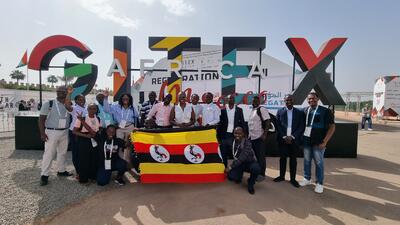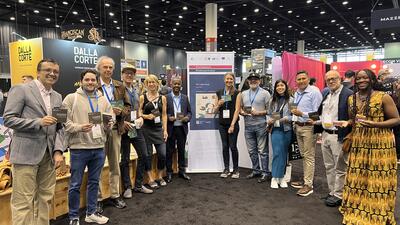
Agritech is critical to food security and global agriculture trade. What needs to be done now.
Food insecurity now affects one third of the world population, and it's likely to worsen as climate change becomes more acute. The UN International Trade Centre together with their NTF V programme donor, the Netherlands, are working with sector leaders to find solutions to this dire scenario.
Food insecurity arises in part because the way food is grown and distributed often suffer from low productivity and high waste, with poor returns to farmers.
Agritech can address many of these chronic issues and provide producers with a competitive edge. Mobile phone applications already help farmers work more effectively and sustainably, establish credit histories, track market prices and serve as a mobile marketplace so farmers can sell their produce online.
‘Economic development is clearly increasingly dependent on digital technologies,’ said Audrey Goosen, Netherlands’ Deputy Permanent Representative to the WTO. ‘The solution is to think critically about what is essential for the market. Agritech can make a huge contribution to improving food security and the sustainability of the agricultural sector.
In Africa, ITC through the NTF V programme is helping tech entrepreneurs work with thousands and farmers and consumers. One of these entrepreneurs, Stephane Nwolley Jnr, CEO of Npontu Technologies Ghana, provides a sales management app for farmers.
‘I have seen farmers quickly become more knowledgeable. Through mobile apps they can get real time information on diseases affecting their crop, they can match production to market demand, and they are more able to access finance, Nwolley said. ‘And now young people in urban areas are using agritech to invest in poultry or fish farming, sometimes crowdfunding farmers or contributing to buying land.’
Stella Lugalambi co-founded Hamwe East Africa Ltd., an award-winning agritech. She believes tech can reduce abandoned farmland by demonstrating with clear and timely data the economic value of putting such land to productive use.
But for farming to become financially attractive, Lugalambi believes policies to make border restrictions easier to navigate. ‘We need policy to include information. We need clear cultivation standards, accessible import/export regulations and a central information repository so that producers, tech innovators and exporters can easily access data and adapt accordingly,’ Lugalambi insisted.
Can technology ensure food security and successful sustainable trade?
‘Of course, technology is not a panacea. There are many other factors at play,’ said Goosen.
To have a wider effect, technology needs to be accompanied by improved rural connectivity, access to funding, and skills training for producers and on up the supply chain.
‘Trade also has a role. It’s important to encourage small farmers to work together to achieve economies of scale and help them meet international certification standards,’ Goosen added.
On a policy level, trade regimes need to allow enough imports of key equipment and technology. Public sector also must support innovation, proper payment protocols and shared protocols on farmer data.
A stable regulatory environment as well as access to finance and infrastructure are all critical. Public-private partnerships can steer innovation towards solving development and sustainability challenges.
Nwolley and Lugalambi were sponsored by the NTF V programme to attend the World Trade Organization’s 13th Ministerial Conference and Trade Tech Forum in Abu Dhabi 26 Feb – 2 March. There they joined ministers and policy leaders in an agritech panel jointly presented by the Netherlands and the ITC.
‘Where else would I have been listened to by ministers of trade? I had discussions on a completely different level, expanding my thinking and understanding of how to get different farmers to an export level and work together towards food security,’ Lugalambi said.
Policymakers and government representatives also heard from tech innovators. ‘Governments should start getting involved in fintech innovations to improve trade financing for underserved populations in ways that go beyond commercial interest rates,’ she said. ‘If we have governments brainstorming and working together with the private tech sector, they can be part of the process rather than having to play catch-up.’
The WTO conference was a rare opportunity to share ground-level information with top thought leaders and learn how other countries are solving challenges by integrating AI into their business models, said Nwolley.
From an African perspective, Nwolley added, immediate steps must include improving infrastructure such as roads for warehouse access, proper warehousing for perishable goods, adjusting utility costs and furthering digital literacy, particularly with the advances in AI.
‘Think how AI can support decision making when combined with smart sensors in the fields, or in determining the best time to bring produce to market,’ Goosen said. ‘Smart developers in the Netherlands, Africa and elsewhere are already coming up with solutions to challenges no one has even thought of before.’
About the project
The Netherlands Trust Fund V (NTF) (July 2021 – June 2025) is based on a partnership between the Ministry of Foreign Affairs of The Netherlands and the International Trade Centre. The programme supports MSMEs in the digital technologies and agribusiness sectors. Its ambition is two-fold: to contribute to an inclusive and sustainable transformation of food systems, partially through digital solutions, and drive the internationalization of tech start-ups and export of IT&BPO companies in selected Sub-Saharan African countries.









